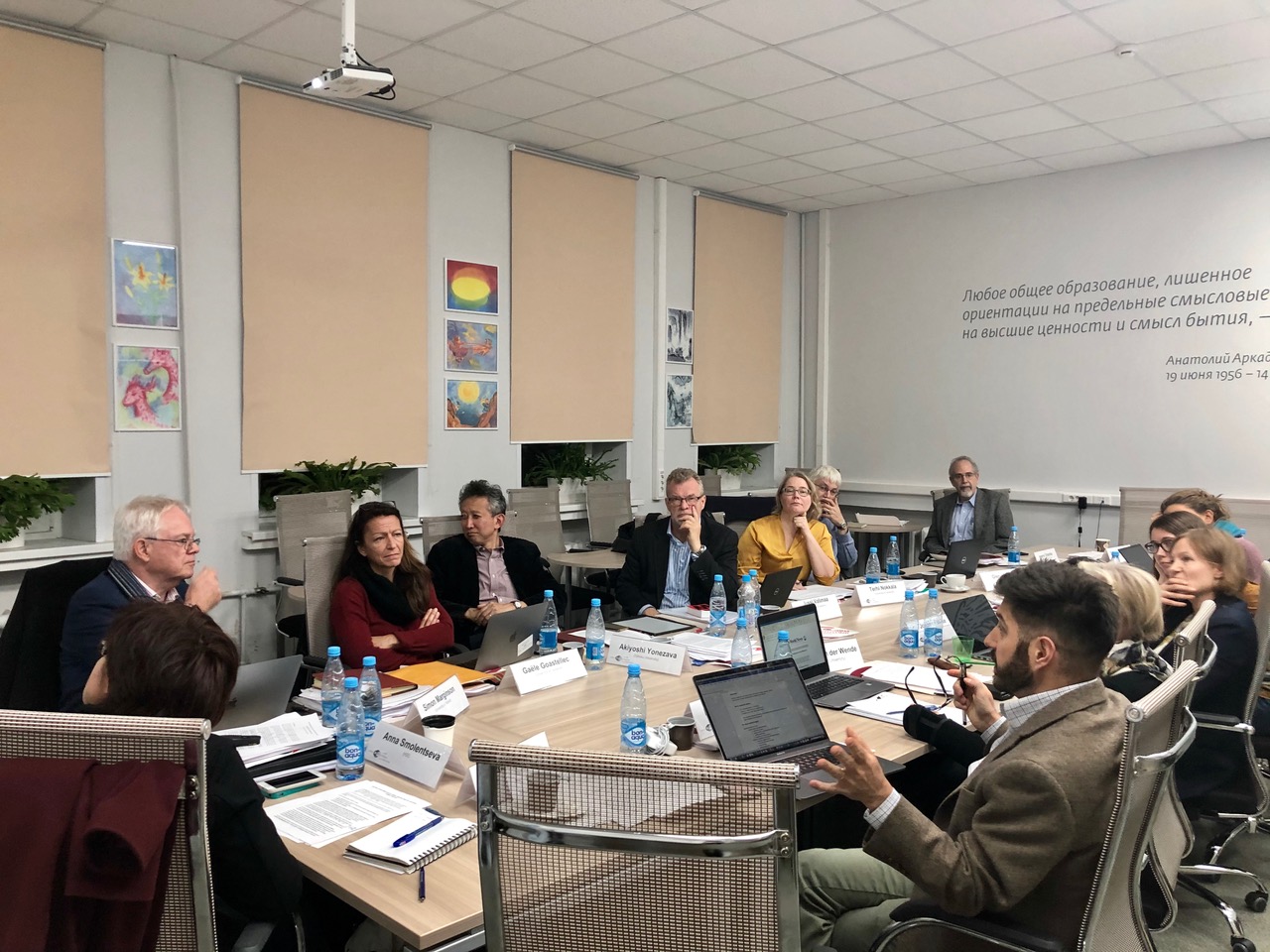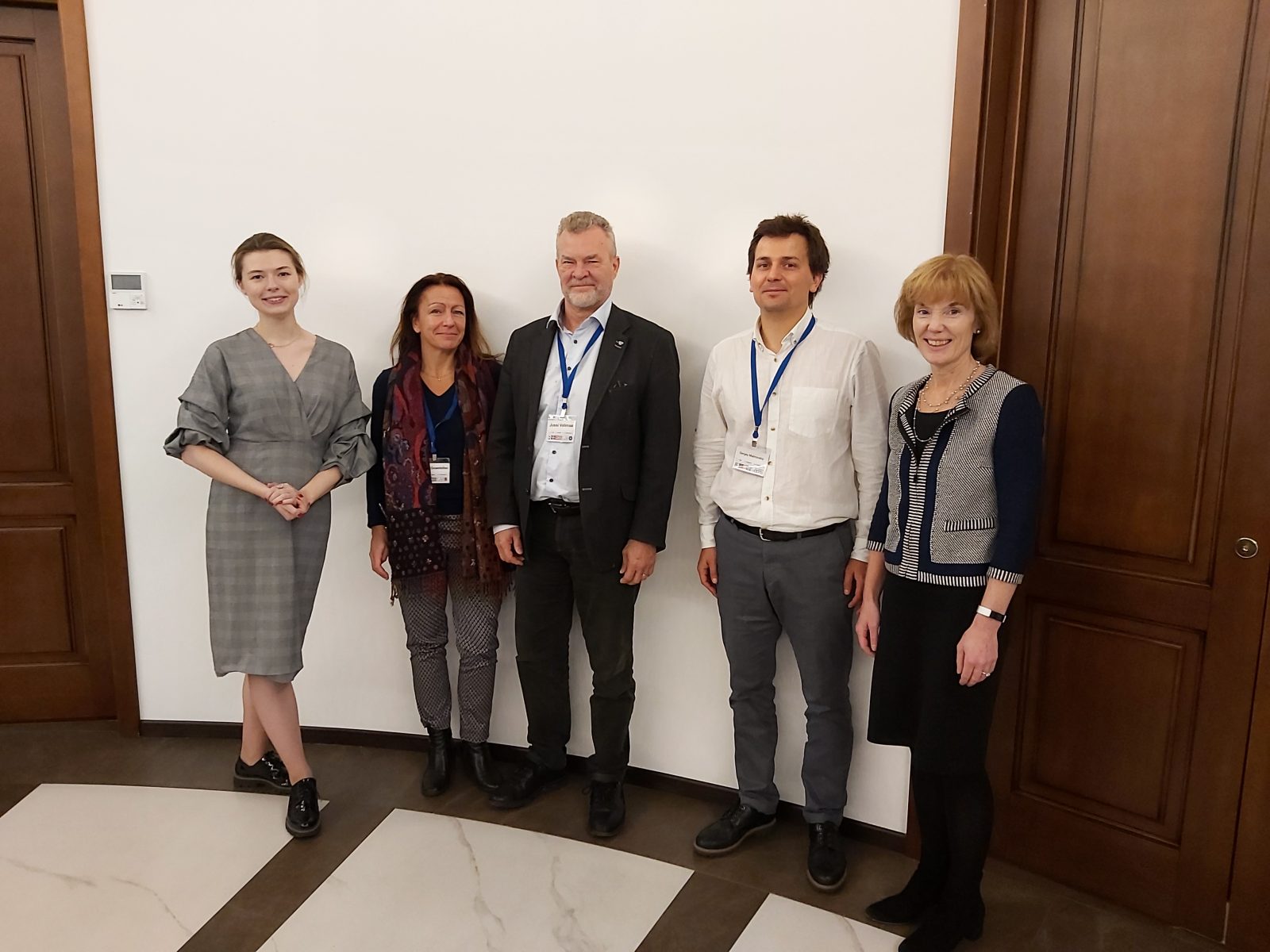- European Universities – Critical Futures (2019-)
Led by Susan Wright (Aarhus Univ.) and funded by Independent Research Fund Denmark
What are the future roles of universities in creating social and regional integration in Europe, in a shifting global context? To address this question, the project will build a network of European research centres that will reassess the future role of universities in the European Research Area. The network will include senior and early stage researchers with members from 17 higher education research centres in Denmark and across Europe, including OSPS UNIL.
- Contribution of Higher Education to individuals and societies. An international project (2019 -)
Led by S. Simon Marginson, International Project Convenor (Oxford/HSE), Brendan Cantwell (Michigan State U), Daria Platonova (HSE), Anna Smolentseva (HSE) and funded by Moscow School of Economics

Understanding the full contributions of higher education and research – to individuals, and to local/regional, national and global society – is challenging for both policy and social science. Some parts of the contributions of higher education are more readily modelled and measured than are others. The issue is often politicised, which makes it a matter of broader concern but also more contested and difficult to resolve. Yet it matters. Without clarity it is difficult to improve the effects of higher education in a deliberate and conscious way. We need a comprehensive accounting in which all of the many contributions of higher education (social, economic, cultural, political, subject-forming; systemic and institutional; local, national and global) can be considered – a framework that combines the measurable elements with those elements that can only be understood by using a process of complex synthetic judgment. We are well short of this. In some areas, all that we have are vague claims with no empirical or policy purchase. In other areas there are good data but we lack a larger framework in which the data are brought into conjunction and their limits are understood. The project will produce a book with multiple contributors, tha focuses on both conceptual development and empirical data; both summarises what we know and moves forward to new ideas and insights; identifies what national systems have in common and also how they vary.
- Higher Education in Welfare States (2019 – )
Led by E. Shibanova, S. Malinovskiy, G. Goastellec, J. Välimaa, L. Perna and funded by Moscow School of Economics.

The research intends to apply the welfare framework to the higher education domain including countries that are not advanced western democracies; To compare access dynamics in different types of welfare regimes, testing convergence/divergence processes in access-relating policies across regimes. To detect and analyze patterns of institutions-access relations within and across welfare regimes ; To analyze cross-country disparities particularly in HE access structure and dynamics with new accents in explanatory characteristics: a. HEIs differentiation as a layer mediating social-education stratification, b. assemblages of institutional settings, c. control characteristics of social and political environment. FInally, il will stress upon in-depth analyses of how institutional arrangements work toward more or less differentiation of access.
- APIKS, Academic Profession In the Knowledge Societies (2018-)
Led by ZHAW, Centre CHESS of Univ. of Zürich and OSPS UNIL
The project titled « Academic Profession in a Knowledge-Based Society » (APIKS) is a large-scale survey of academic staff employed in higher education and research institutions across Europe. The study focuses on workplace environment, work satisfaction and the changes in the academic profession.
Research project advisor
- Australian research on equity in access to higher education (2020 – ongoing)
Led by P. Burke and funded by the National Priority Pool Funding (Australie)
